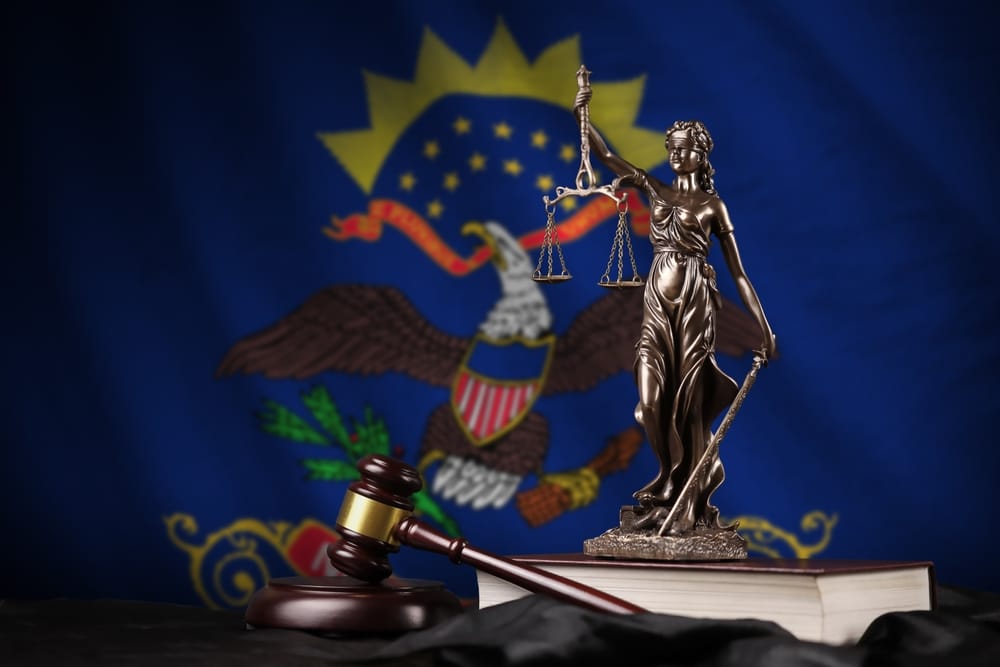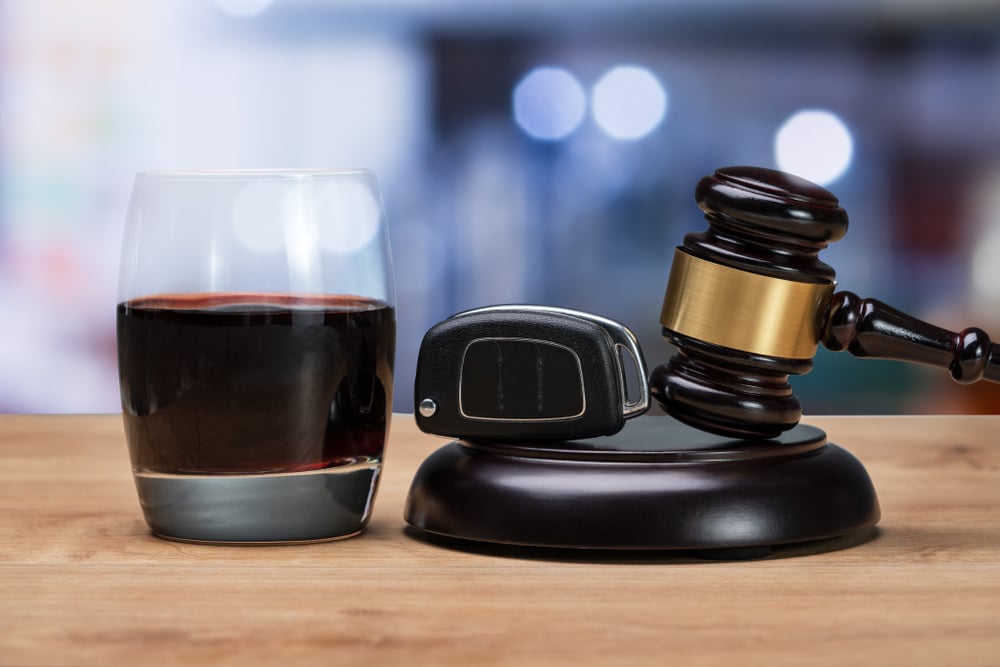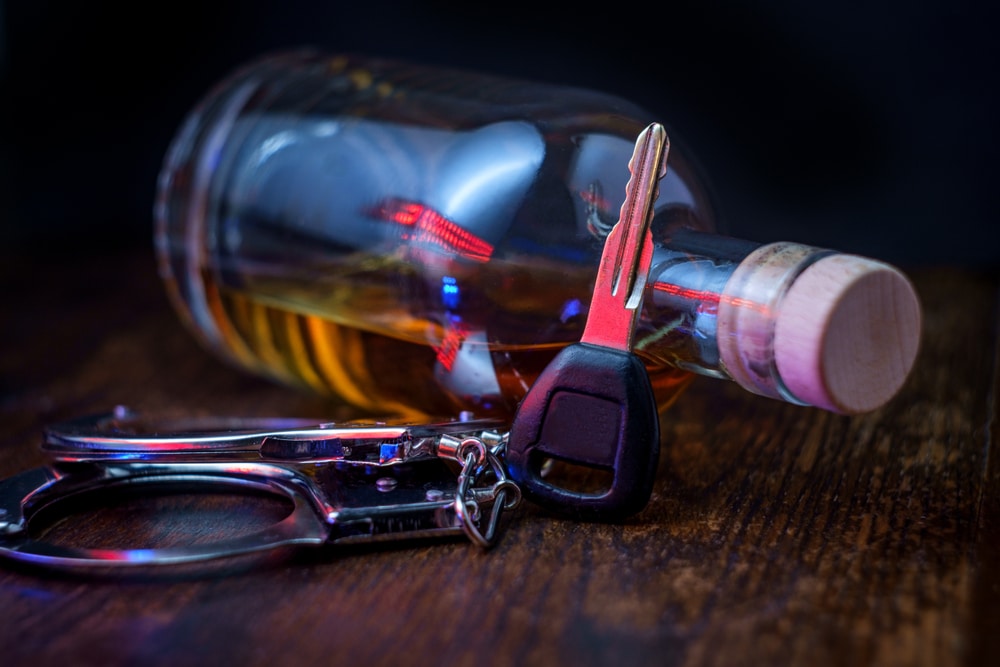
North Dakota maintains strict driving under the influence (DUI) laws, with enforcement prioritized across all jurisdictions. The state operates under a per se law that defines impairment at 0.08% blood alcohol concentration (BAC) for most drivers and 0.04% for commercial drivers. Law enforcement agencies throughout the state coordinate efforts to identify and apprehend impaired drivers through various programs and initiatives.
The state employs a combination of criminal and administrative penalties, with mandatory minimum sentences for repeat offenders. Enforcement efforts are particularly intensive in areas with historically high rates of DUI incidents and during high-risk periods such as holidays and major events.

0.08% or higher for regular drivers and 0.04% for commercial drivers

Yes

91 days

Conditional

Yes (0.18%+)
North Dakota faces unique challenges in DUI enforcement due to its rural nature and widespread agricultural communities. The state has implemented comprehensive strategies to address DUI incidents, including coordinated enforcement efforts between state and local agencies, particularly in rural areas where response times and resources may be limited.
Statistics indicate that DUI remains a significant concern in North Dakota, with particular challenges during harsh weather conditions and in remote areas. The state has responded with targeted enforcement programs and educational initiatives designed to address regional specific challenges.
North Dakota’s DUI penalties follow a graduated system based on the number of prior offenses within a seven-year period. First-time offenders face a minimum fine of $500, potential jail time of up to 30 days, and a 91-day license suspension. Penalties increase significantly for subsequent offenses, with fourth and subsequent offenses classified as Class C felonies.
The state mandates additional penalties for aggravating factors such as high BAC levels (0.16% or greater), the presence of minors in the vehicle, or causing injury or death. Refusal to submit to chemical testing is also criminalized in North Dakota, carrying penalties similar to DUI conviction.
North Dakota law provides for enhanced penalties in cases involving aggravating circumstances. These include DUI with a minor in the vehicle, which results in mandatory jail time and increased fines. High BAC cases (0.16% or greater) trigger mandatory participation in the 24/7 Sobriety Program and extended license suspension periods.
Commercial drivers face stricter standards with lower BAC limits and additional consequences affecting their commercial driving privileges. The state also maintains zero tolerance for drivers under 21, with any detectable amount of alcohol resulting in license suspension.
Law enforcement agencies in North Dakota employ various strategies to detect and apprehend impaired drivers. Regular sobriety checkpoints are conducted according to constitutional guidelines, with locations chosen based on data analysis of high-risk areas and times.
Officers receive specialized training in standardized field sobriety testing and advanced roadside impaired driving enforcement (ARIDE). The state also utilizes saturation patrols and participates in national enforcement campaigns.
North Dakota law enforcement agencies utilize modern breath testing instruments, primarily the Intoxilyzer 8000, for evidential testing. These devices undergo regular maintenance and calibration to ensure accuracy and reliability of results.
The state also employs preliminary breath testing devices for roadside screening and has expanded its use of drug recognition experts (DREs) to address drug-impaired driving. Blood testing is conducted at the state crime laboratory, following strict chain of custody procedures.
North Dakota maintains a network of approved addiction treatment providers offering services specifically for DUI offenders. Programs range from education-focused interventions for first-time offenders to intensive treatment for those with multiple offenses or substance use disorders.
Treatment options include individual counseling, group therapy, and intensive outpatient programs. The state emphasizes evidence-based practices and requires regular evaluation of program effectiveness.
All DUI offenders in North Dakota must complete an addiction evaluation by a licensed addiction counselor. Based on evaluation results, offenders are assigned to appropriate levels of education or treatment, ranging from the Prime for Life program for first-time offenders to intensive treatment for repeat offenders.
The framework includes specific completion requirements, attendance standards, and progress monitoring protocols. Non-compliance can result in additional penalties and delayed license reinstatement.


North Dakota utilizes various monitoring systems to ensure offender compliance with court orders. The 24/7 Sobriety Program requires twice-daily breath tests or continuous alcohol monitoring for certain offenders. Ignition interlock devices may be required for license reinstatement.
Probation officers and treatment providers coordinate to monitor compliance and progress. The state maintains electronic monitoring systems to track participation and compliance across jurisdictions.
The North Dakota Department of Transportation handles administrative license suspensions independently of criminal proceedings. Immediate license suspension occurs upon arrest, with specific procedures for requesting administrative hearings and limited driving privileges.
Administrative procedures follow strict timelines and requirements for documentation and evidence presentation. The burden of proof differs from criminal proceedings, requiring only a preponderance of evidence.
Administrative license revocation procedures begin automatically upon arrest, with officers seizing physical licenses and issuing temporary permits. Drivers have 10 days to request an administrative hearing to contest the suspension.
The process includes specific requirements for reinstatement, including completion of addiction evaluation and treatment, payment of reinstatement fees, and proof of insurance compliance.
DUI cases in North Dakota typically begin in municipal or district court, depending on jurisdiction. The state provides specific timelines for preliminary hearings, motions, and trials, with procedures designed to ensure efficient case processing while protecting defendants’ rights.
Discovery procedures include access to maintenance records for testing equipment and officer training records. Pretrial conferences address technical and procedural issues before trial.
Multiple agencies coordinate DUI enforcement and prevention efforts in North Dakota. The Department of Transportation oversees administrative procedures and maintains driving records. The Highway Patrol leads enforcement efforts on state highways.
Other key agencies include the Department of Human Services (addiction treatment oversight), Attorney General’s office (prosecution support), and local law enforcement agencies. The State Crime Laboratory provides testing services and expert testimony.
North Dakota participates in the Driver License Compact, sharing conviction information with other states. Out-of-state DUI convictions count toward repeat offender status, and the state honors license suspensions from other jurisdictions.
Special considerations apply to nearby tribal lands and cross-border traffic with Canadian provinces. The state maintains agreements regarding license suspensions and treatment program requirements with neighboring states.
DUI enforcement involves coordination between state, county, and municipal authorities. Special considerations apply to offenses committed on tribal lands, federal property, and military installations within North Dakota.
Cross-jurisdictional agreements govern case processing and information sharing. The state maintains specific procedures for cases involving tribal members and diplomatic immunity.
DUI conviction costs in North Dakota extend beyond court fines. Total expenses typically include attorney fees, addiction evaluation and treatment costs, license reinstatement fees, and increased insurance premiums. First-offense costs often exceed $10,000 over several years.
Additional economic impacts include lost wages, transportation costs during suspension periods, and potential job loss. Installation and maintenance of ignition interlock devices add significant expenses for many offenders.


DUI incidents impose substantial costs on North Dakota society through emergency response resources, healthcare expenses, and property damage. The rural nature of the state often requires extended emergency response times and specialized medical transport services.
Indirect costs include lost productivity, family impact, and strain on the criminal justice system. The state allocates significant resources to prevention, enforcement, and treatment programs.
North Dakota continues to evaluate and update its DUI laws and procedures. Current trends include increased use of technology for monitoring and enforcement, consideration of lower BAC limits, and expansion of treatment options.
Legislative priorities include strengthening penalties for repeat offenders, expanding monitoring programs, and improving access to treatment in rural areas. The state monitors national trends and research in DUI prevention and enforcement.
The state increasingly relies on technological solutions for DUI enforcement and monitoring. Advanced breath testing equipment, electronic case management systems, and automated license plate readers support enforcement efforts.
Emerging technologies under consideration include real-time BAC monitoring devices and improved data analytics for identifying high-risk locations and behaviors.
Current challenges include addressing drug-impaired driving, particularly with the legalization of marijuana in neighboring states. The state is developing improved detection methods and officer training programs.
Other emerging issues include the impact of ride-sharing services, particularly in rural areas, and the need for updated policies regarding alternative transportation options.
North Dakota implements various prevention and education initiatives targeting different age groups and risk populations. Programs include school-based education, public awareness campaigns, and specialized interventions for high-risk groups.
The state coordinates with private organizations, tribal authorities, and community groups to deliver prevention messages and provide alternative transportation options during high-risk periods.
North Dakota requires SR-22 insurance certification for drivers convicted of DUI. This requirement typically remains in effect for three years following license reinstatement. The filing proves financial responsibility and must be maintained continuously.
Failure to maintain SR-22 coverage results in immediate license suspension. The state monitors compliance through electronic reporting systems maintained by insurance companies.
DUI convictions can significantly impact employment in North Dakota, particularly in industries requiring driving or professional licenses. Commercial drivers face extended disqualification periods and potential career-ending consequences.
Professional license holders may face additional reporting requirements and disciplinary actions. Some employers maintain specific policies regarding DUI convictions, affecting both current employment and future opportunities.
North Dakota monitors treatment program effectiveness through recidivism rates and completion statistics. Programs must demonstrate positive outcomes to maintain state certification and funding.
Research indicates that comprehensive programs combining education, counseling, and monitoring show the best results in reducing repeat offenses. The state continues to evaluate and improve treatment protocols based on outcome data.
DUI convictions significantly impact insurance costs in North Dakota. Insurance providers typically increase premiums substantially following conviction, with increases lasting several years. SR-22 insurance certification is required for license reinstatement.
Some insurance carriers may cancel coverage following DUI conviction, forcing offenders to seek high-risk insurance options at premium rates.


North Dakota requires SR-22 insurance certification for drivers convicted of DUI. This requirement typically remains in effect for three years following license reinstatement. The filing proves financial responsibility and must be maintained continuously.
Failure to maintain SR-22 coverage results in immediate license suspension. The state monitors compliance through electronic reporting systems maintained by insurance companies.
DUI convictions often create significant challenges in daily life, particularly in rural areas where alternative transportation may be limited. License suspension can affect employment, family obligations, and access to treatment services.
Social stigma, relationship stress, and financial strain are common challenges. Support services and counseling programs address these broader impacts of DUI convictions.
North Dakota maintains a comprehensive approach to DUI enforcement and prevention, combining strict penalties with rehabilitation opportunities. The state’s system recognizes the unique challenges of its rural landscape while maintaining consistent enforcement standards across jurisdictions.
The multi-agency approach ensures coordinated enforcement efforts while providing various support services for offenders seeking rehabilitation. Continuous monitoring and program evaluation help identify areas for improvement and adaptation to emerging challenges.
Technology plays an increasingly important role in both enforcement and monitoring, while prevention programs target various demographic groups and risk factors. The economic and social impacts of DUI remain significant, particularly in rural communities.
The system continues to evolve, incorporating new research, technologies, and best practices while maintaining focus on public safety and effective rehabilitation. Future developments will likely emphasize improved monitoring technologies, enhanced treatment options, and solutions to rural transportation challenges.
Success in reducing DUI incidents requires ongoing coordination between law enforcement, courts, treatment providers, and community organizations, supported by public education and prevention efforts. The state’s comprehensive framework provides a foundation for addressing both current challenges and emerging issues in DUI prevention and enforcement.
At DUI 101, our mission is to empower you with the knowledge needed to make informed decisions during this challenging time. Explore our articles and guides to better understand your situation and the steps ahead.
© 2024 Chapman SEO LLC. This website is for educational and informational purposes only. All content is created using AI technology and maintained by non-lawyers and should not be considered legal advice. The information provided is general in nature and may not be suitable for your specific situation. Always consult with a qualified legal professional for advice regarding your individual circumstances. We do not create attorney-client relationships through this website. By using this site, you acknowledge that you have read and understand these terms.